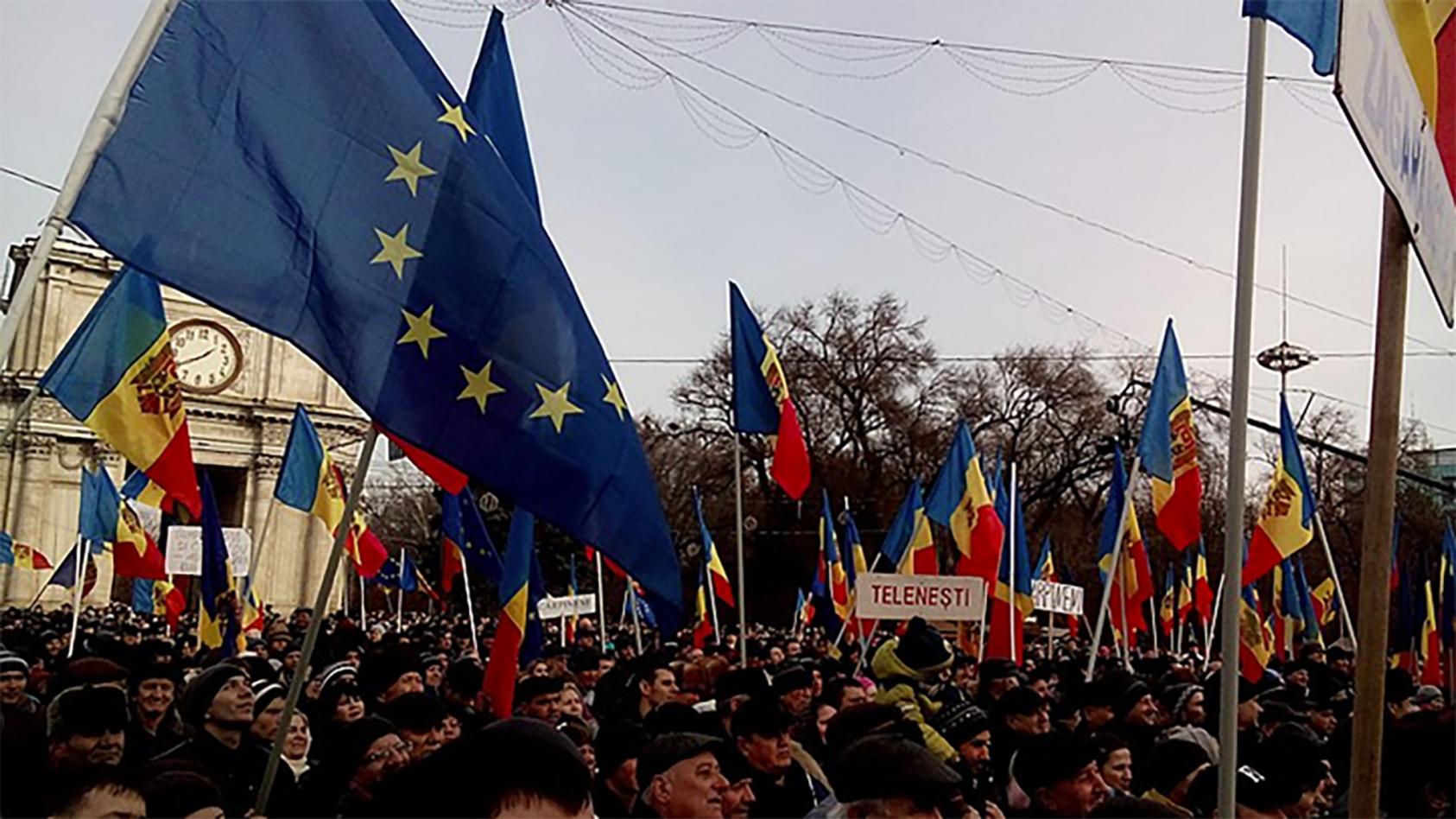-
Russia has increased its information war against Moldova joining the European Union (EU), Kremlin disinformation campaigns are heavily using social media: Facebook, Tik Tok, Telegram and others.
-
Russia’s disinformation in Moldova pursues three key goals: to derail Moldova’s accession to the EU, undermine support for the pro-Europe government of President Maia Sandu and bring Moldova back into Russia’s orbit.
-
Some of the disinformation attacks are startlingly transparent lies: A prominent Russian, pro-Kremlin commentator, Vladimir Solovyov, last year posted a photo on social media of a Moldovan rally supporting EU membership, simply relabeling it an anti-EU demonstration in a different city. Other attacks are increasingly sophisticated, including the use of artificial intelligence to create “deepfaked” videos of President Maia Sandu, according to Moldova-based journalists and Sandu’s office.
The Russian campaign uses several core narratives, according to a study:
1. A risk of war over Transnistria, a separatist enclave at Moldova’s eastern edge, if Moldova should press for the withdrawal of Russian troops based there.
2. Risk of communal conflict between Moldova’s ethnic or linguistically Romanian citizens (roughly 80 percent or more of the population) and the minorities of Russians or other Russian-speaking citizens.
3. NATO’s threat of war. Moldova is constitutionally mandated to be militarily neutral, but it cooperates with NATO. Russia warns that Moldova may join NATO, making war almost inevitable.
4. Anti-LGBT propaganda. Russia warns that liberal EU policies include “homosexual propaganda” that will turn Moldovan children to homosexuality.
5. Russia is good, Europe is bad. Russian narratives say that deeply impoverished Moldova owes its few advantages — such as Soviet-built factories — to its rule from Moscow, while “nothing good came out of Europe.”
Russian Disinformation: Impact and Response
-
Investigations have found that 35% of Moldovans are agreeing that "Russia invaded Ukraine to protect people marginalized by Nazi sympathizers.” Similarly, 31% agreed that “the Russian Federation is the guarantor of peace and stability in Moldova.” Russia’s disinformation campaigns “lead to decreased support for human rights, exacerbate relations between linguistic groups, and may increase vulnerability to political violence, especially among the youth.”
-
Because Moldova is a small media market, the limited advertising or other revenue available to its news media leaves fact-based journalism massively overmatched by the millions of dollars per month that experts say Russia is spending on disinformation.
-
International partners find ways to help Moldova’s Association of Electronic Press or other institutions build capacities for real-time detection and countering of faked information. This could include initiatives like StopFals, a fact-checking project run by Moldova’s Independent Press Association.
I really do not understand why we (EU) let Russia and China influence society and especially the youth via american social media apps so hard.
Everything we talk about is chat surveillance, it’s riddiculous


